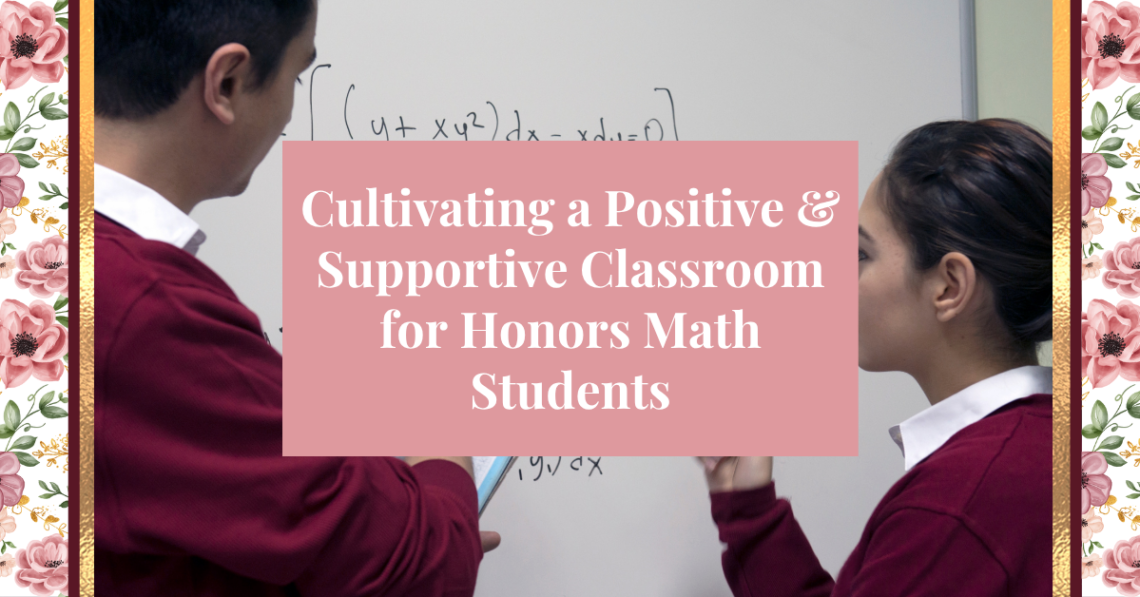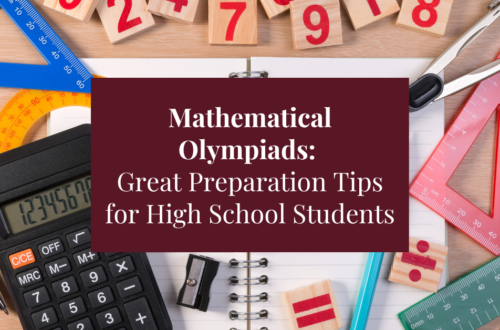Honors math students often come with a mix of high ability, high expectations, and high pressure. While they may grasp concepts quickly, they also face unique challenges—like perfectionism, fear of failure, or comparison with peers. That’s why creating a classroom environment that balances rigor with support is essential. Here’s how to do just that.
1. Build Trust from Day One
A positive classroom culture begins with relationships. Get to know your students—not just their academic strengths, but their interests and personalities too.
- Learn names quickly and pronounce them correctly.
- Host open Q&A sessions or “Math Chats” where students can share thoughts and fears.
- Model vulnerability by admitting when you make mistakes and showing how to recover from them.
This trust builds a space where students feel safe to take academic risks.
2. Emphasize Growth Over Perfection
Honors students can struggle with perfectionism. Help them reframe their mindset:
- Use growth mindset language—praise effort, strategy, and persistence.
- Normalize mistakes as part of learning: show error analysis examples that lead to deeper understanding.
- Offer challenge problems with multiple paths to a solution, encouraging exploration, not just correctness.
Celebrate the process, not just the product.

3. Provide Appropriate Challenge with Support
Keep rigor high—but scaffold as needed. Honors students thrive when they’re stretched just enough.
- Use tiered assignments or extension projects to differentiate.
- Offer enrichment activities like math competitions, real-world applications, or advanced topics.
- Create collaborative learning moments—group work, peer teaching, or math debates.
Challenge is energizing when it comes with support.
4. Encourage Collaboration, Not Competition
It’s easy for honors classes to become competitive. Instead, cultivate a team mindset.
- Set the tone early: “We’re here to grow together.”
- Use group challenges or escape room-style reviews where everyone wins by contributing.
- Celebrate different strengths—creativity, precision, insight, perseverance.
A healthy class culture lifts everyone up.
5. Check In Regularly—Academically and Emotionally
Even high-achieving students can feel overwhelmed or lost. Create consistent opportunities to connect:
- Quick exit tickets asking, “What’s still confusing?”
- Occasional anonymous surveys for honest feedback
- Individual or small group check-ins during work time
A supportive teacher presence makes a big difference.
Final Thoughts
Creating a positive, supportive classroom for honors math students doesn’t mean lowering the bar—it means building the ladder. When students know they’re seen, supported, and challenged, they’ll rise higher than ever before.
Have your own favorite way to build community in your honors math classes? Share it below—I’d love to hear what’s working in your classroom!





